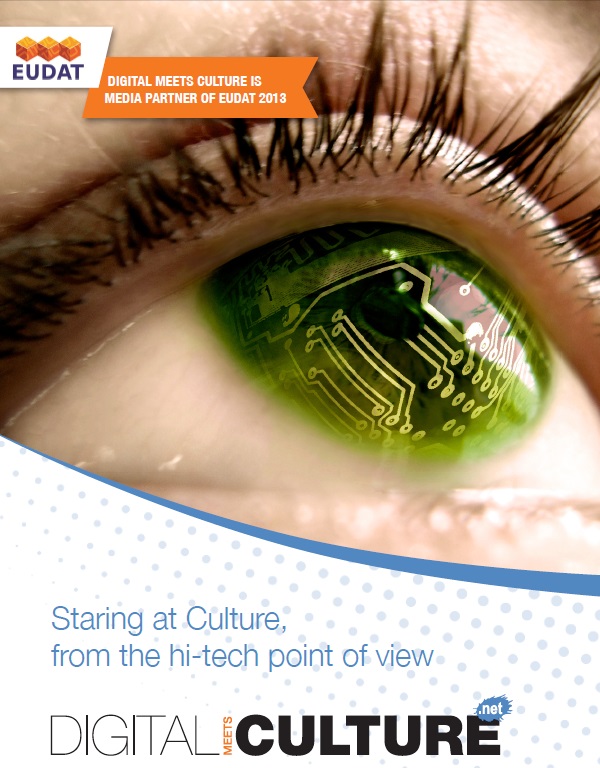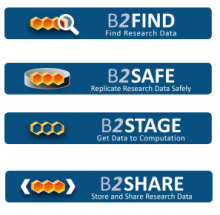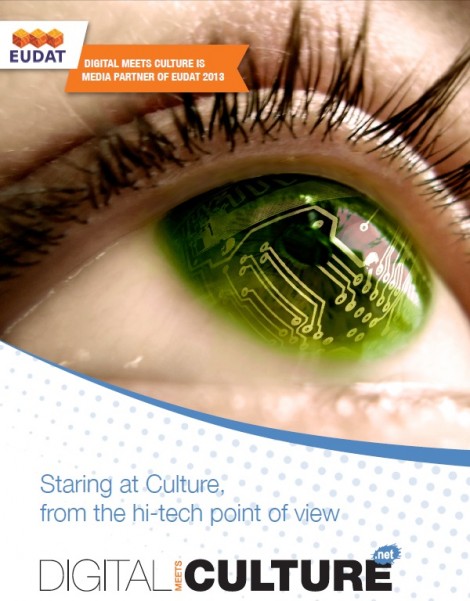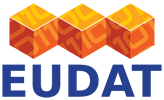|
Digital meets Culture https://www.digitalmeetsculture.net/article/eudat-2013-conference-in-rome/ Export date: Thu Feb 19 7:38:31 2026 / +0000 GMT |
EUDAT 2013 conference in Rome EUDAT project provides an integrated solution for finding, sharing, storing, replicating, staging & computing primary and secondary research data, deployed thanks to different services. digitalmeetsculture was media partner of this important event, the EUDAT 2nd conference held on 28-30 Oct 2013 in Rome, that saw the participation of international speakers discussing the new challenges for research in the big data era. Medicine and Natural sciences, including astronomy, biology, chemistry, earth sciences and physics, and, more recently, the Social Science and Humanities and in particular the Digital Cultural Heritage (DCH) sector are facing an increasing need for new services and data management solutions. For this reason, the conference was the ideal setting to showcase the services developed withing the EUDAT project, and outline the roll out phase as well as to offer hands-on training. Discussions on the new set of EUDAT services were also a feature of the conference with semantic annotation, dynamic data & workflows addressed, a natural follow on to the Working Group discussions that were held in Barcelona in Sept. 2013. EUDAT first set of data services currently includes:  B2FIND : a simple and user-friendly way to find and access research data collections stored in EUDAT data centers B2FIND : a simple and user-friendly way to find and access research data collections stored in EUDAT data centersB2SAFE : a robust, safe and highly available replication service allowing community and departmental repositories to replicate their research data B2STAGE : a reliable, efficient, easy-to-use service to ship large amounts of research data between EUDAT storage resources and workspace areas of high-performance computing systems. B2SHARE : a user-friendly, reliable & trustworthy way for researchers & communities to store and share their research data. EUDAT's approach to building services is based on three fundamental elements:
These services imply and demand data access and re-use policies as well as sustainability plans and cost & funding models, not to forget public-private-partnerships and interoperability all addressed during the conference. Cultural Heritage and Social Sciences & Humanities featured strongly in this year's conference with two dedicated workshops: Social Science and Humanities (SSH) tackle the Big Data challenge and Digital Preservation of Cultural Data. The latter brought together projects and initiatives working world-wide in the domain of the digital preservation of digital cultural heritage, digital arts, digital performances and digital humanities, to identify common goals and strategic approaches, find synergies, and discuss opportunities for cooperation, starting from concrete use cases. Several services were presented during the workshop: EUDAT services to safely store and preserve data, SCIDIP-ES tools for managing provenance and authenticity, SCAPE scalability platform, APARSEN registry of services. They will all be tested in the second run of the Proof of Concepts that will be conducted by DCH-RP, the project who organised the workshop, generating a very concrete impact of the encounter. Finally, new emerging issues have been investigated, such as the possibility for the memory institutions to check the conformance of their digital archives implemented in the most common file formats. This is a key topic in the digital preservation workflow and it will be the subject matter of the new PREFORMA Pre-Commercial Procurement project. 
|
